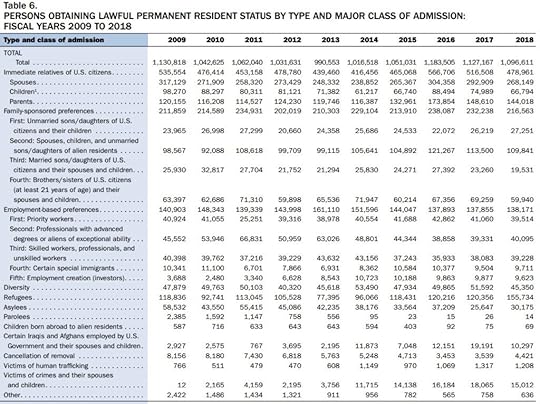Bryan Caplan's Blog, page 29
July 28, 2020
Escaping Paternalism Book Club: Part 3
Summary
In Chapter 6 of Escaping Paternalism, Rizzo and Whitman argue that paternalistic behavioral economists have recklessly rushed from laboratory experiments to real life. Even if the experiments were above reproach, their external validity is questionable at best. Sunstein, Thaler, and the rest have overpromised and underdelivered:
A central claim of behavioral paternalists is that their approach is “evidence-based” (Thaler 2015b, 330–345). They claim to eschew ideology and simply advocat...
July 27, 2020
When to Defund
From my The Case Against Education:
When I argue education is largely wasteful signaling, most listeners yield. Popular resistance doesn’t kick in until I add, “Let’s waste less by cutting government spending on education.” You might think conceding the wastefulness of education spending would automatically entail support for austerity, but it doesn’t. The typical reaction is to confidently state, “Education budgets should be redirected, not reduced.”
Such confidence is misplaced. The discovery...
July 22, 2020
Not Even Daycare
The most common misinterpretation of The Case Against Education is that it’s only about college. In fact, my treatise analyzes not only high school, but K-8 as well. Where there is education, there is educational signaling.
Whenever I opined K-8 education, though, I made a major concession. While schools mostly waste taxpayer money and students’ time, they nevertheless provide one undeniably useful service: daycare. Schools warehouse kids so their parents can work, keep house, and relax. Un...
July 21, 2020
Escaping Paternalism Book Club: Part 2
Summary
Rizzo and Whitman now devote two chapters to critiquing (a) the underlying empirics of behavorial economics, plus (b) the way behavioral economists market these empirics. In Chapter 4, RW go after “defective” preferences; in Chapter 5, they reconsider “biased” beliefs.
RW repeatedly stress the modesty of their project. They aren’t saying that behavioral economics is worthless, just oversold. If only behavioral economists had vetted their own work with the same (motivated?) skepticism ...
July 20, 2020
The Diversity Lottery: Some Rough Open Borders Arithmetic
How many people want to immigrate to the U.S.? In my past work, I’ve appealed to both surveys and black market prices to ballpark the answer. Another approach, however, is to take a look at the U.S. Diversity lottery. Every year, the U.S. takes applications from would-be immigrants all over the world. Countries like Mexico, China, and India that already send lots of immigrants to the U.S. are excluded. Further requirements:
If selected, to qualify for the immigrant visa, they must have comp...
July 19, 2020
Who Gets In?
I’ve studied immigration for years, but now that I’m prepping an Economics of Immigration class for the fall, I’ve been learning some new facts.
Today’s question: Who actually gets into the U.S. legally? Here’s what I found in the latest Yearbook of Immigration Statistics.

I’ve long known that family reunification is the heart of U.S. immigration policy, but I didn’t realize the extremity of the pattern. In 2018, 44% of visas went to immediate relatives of U.S. citizens, and another 20% were ...
July 16, 2020
Observations from Florida
I just got back from a month in Naples, Florida. Due to coronavirus, we drove, passing through North Carolina, South Carolina, Georgia, and eastern Tennessee. While in Florida, we mostly stayed near home base, but I did take my sons on a daytrip to Miami. My main thoughts from the visit:
1. The day we left for Florida, the 7-day moving average for new coronavirus cases in the state was 742 per day. Yesterday it was over 11,000 – roughly fifteen times higher. Deaths have increased far less, ...
July 15, 2020
Coronavirus vs. the Non-Identity Problem
Many people think that if Hillary Clinton had won in 2016, the coronavirus crisis would have been less severe. On reflection, this is a drastic understatement. If Hillary Clinton had won in 2016, it is near-certain that the coronavirus crisis never would have started.
To see why, let’s review what philosophers call the Non-Identity Problem. Consider the following statement: “If my parents had won the lottery before my conception, I would be rich today.” Sounds true, right? On reflection, ho...
July 14, 2020
Escaping Paternalism Book Club: Part 1
Summary
Rizzo and Whitman (R&W) begins with a primer on the “new paternalism” – the influential policy reform movement powered by the engine of behavioral economics.
For most of history, paternalists have drawn their support from religious or moral notions of goodness. They have claimed special knowledge, from God or some other source, about how people ought to live. The overtly religious character of temperance movements in the nineteenth and early twentieth centuries exemplifies this kind of “...
July 13, 2020
Escaping Paternalism: Book Club Schedule
I’ll post for the Book Club each Tuesday, starting tomorrow. The breakdown:
Part 1: Chapters 1-3
Part 2: Chapters 4-5
Part 3: Chapters 6-8
Part 4: Chapters 9-10
Please post questions for the authors in the comments. They’ll respond in one or more followup posts.
The post Escaping Paternalism: Book Club Schedule appeared first on Econlib.
Bryan Caplan's Blog
- Bryan Caplan's profile
- 374 followers



